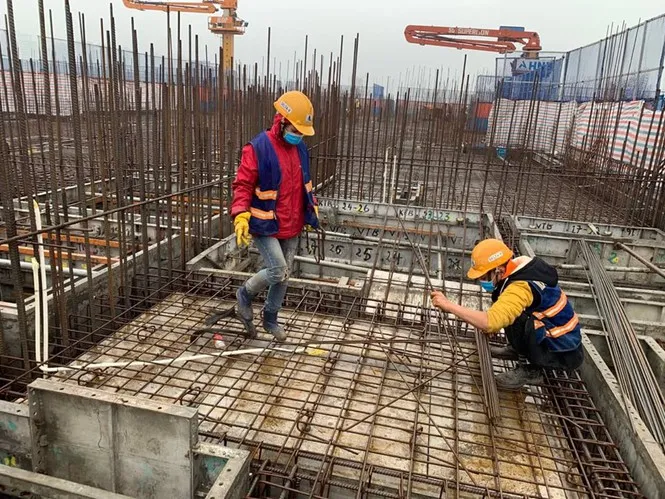
JOURNALIST: - Ma’am, the Government is considering promoting tourism as a solution to stimulating the economy. However, the re-occurrence of Covid-19 pandemic in some localities has exposed high risks to this approach. What changes do you think we have to make now?
Ms. PHAM CHI LAN: - The tourism industry has to now accept a temporary suspension of operations, and focus on preventing the Covid-19 pandemic from spreading. Outbreaks such as in Da Nang may also occur in other places if efforts continue to stimulate tourism at this time. Da Nang was most successful in promoting tourism, but due to the re-occurrence of the pandemic, and mandatory social distancing, the economic loss has been phenomenally huge.
Though the Government has been encouraging the tourism industry recently, it has also been very cautious in reopening the domestic market and does not yet welcome any international tourists for fear of further spread of the disease. Under the present circumstances, putting a halt to domestic tourism is essential. I am also seeing that even provinces that are dependent on tourism and have long relied on tourism as a major source of earnings, have now become very cautious. Therefore, in my opinion we must not use tourism at the moment as a measure to stimulate economic growth.
- Ma’am, how do you assess stimulating public investment in current scenario?
- Currently, public investment capital is being disbursed too slowly and has not been effective. This is because there are still obstacles that many industries and localities are facing and hence cannot disburse investment capital. However, the goal should not be to disburse capital at all costs, but should be done very selectively.
I think that among the projects that the Government is urging for quick disbursement of capital, are projects that are not really necessary. So, instead of putting capital into these public investment projects, it is advisable to put capital into investments in essential businesses and developing some industries that strengthen the new global supply chain to prepare strongly for the future. When these industries are developed effectively, they will pay tax to the State, which is important for economic growth.
As is seen, every time public investment increases, businesses turn to bank loans for implementation of projects. Last few years it was seen that banks waited for disbursement of public investment projects because this caused credit to increase from borrowings by enterprises for such projects. When banks lend they feel more secure when a project is guaranteed by the State, which then affords avoiding of risks such as bad debts later. But I think the banks should not be too dependent on this now, but must expand to new credit packages, such as loans to other potential businesses. Banks should lend enterprises for investing in some areas which are forecast to be part of the new global supply chain which is in formation currently.
The Government must also think of an accompanying plan, such as devoting a part of public investment capital to directly supporting relevant enterprises. It is worrisome that the M&A wave is becoming popular, because domestic enterprises do not have the capital or capacity to compete and survive in that market. If domestic enterprises gradually lose to foreign businesses, the risk will become greater for the economy. In fact, our economy has relied on FDI for too long a time, and when assets are handed to foreign enterprises, our own pillars to support the economy become weak.
- Ma’am, what other solutions do we need, besides supportive measures implemented by the Government, to restore the economy?
- One immediate and urgent task is to increase support for those who are seriously being affected by the Covid-19 pandemic. These are SMEs, and households that are relying on small businesses for their daily livelihood. At this time, the number of workers who have lost their jobs or are temporarily unemployed is increasing, so they need the support of the Government. As per Government figures, the number of workers who need such support has gone upto 30.8 million, and continuing to increase. Although the Government had launched some economic support packages earlier too, which have reached the people already, more support packages must continue to be launched as the pandemic is not showing any signs of abating.
This is a very good sign, but it also reminds us to be well prepared with our own supply chain, before receiving new investments. We must not only welcome more foreign investors but we must also actively enhance our internal resources. This would mean improving our capacity of domestic enterprises to participate in the new global supply chain.
- Ma’am, in your opinion, which economic sectors will develop the most after the Covid-19 pandemic is brought under control? Do we also need to be selective in choosing businesses to rescue?
- Currently, the Government is trying to rescue existing industries that seem to have no future. When the demand for both domestic consumption and export is not high enough, demand decreases sharply in the international market, despite increase within Vietnam. Therefore, the Government needs to reconsider if it is more necessary to focus on new industries with a better future, or old ones that are still dependent on imports from China. What needs to be done now is to invest heavily in developing support industries.
For the last few years, there have been worrisome reports on Vietnam's inability to create a new motivation for economic growth. In actual fact, Vietnam's economic growth has long been based on low cost labor, largely driven by FDI enterprises and partly export growth. Now it has become necessary to push up labor productivity through innovative measures, improve quality of human resource, upgrade skills in industries and call for higher productivity.
- Thank you very much.




















